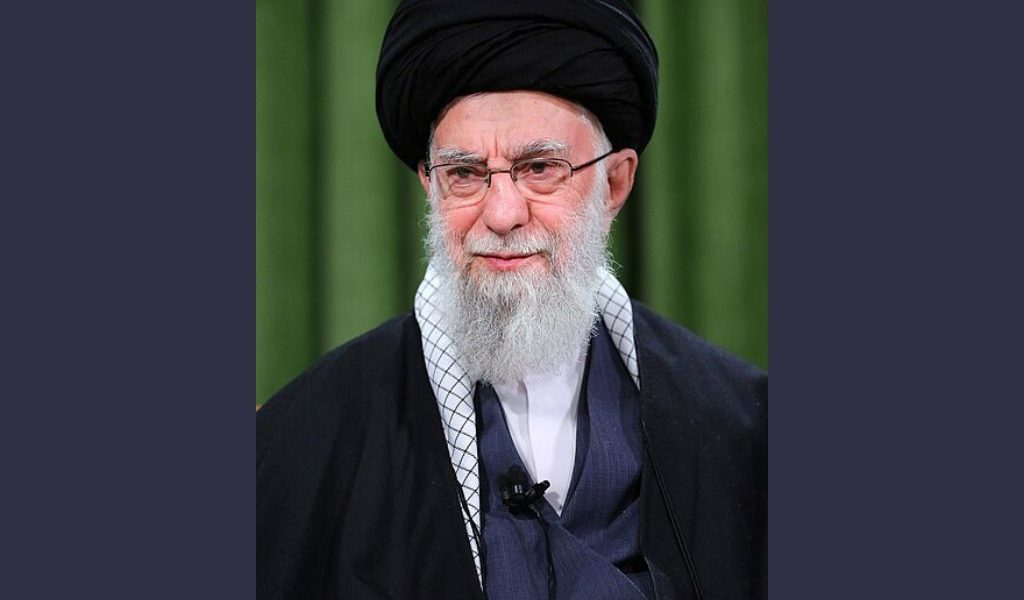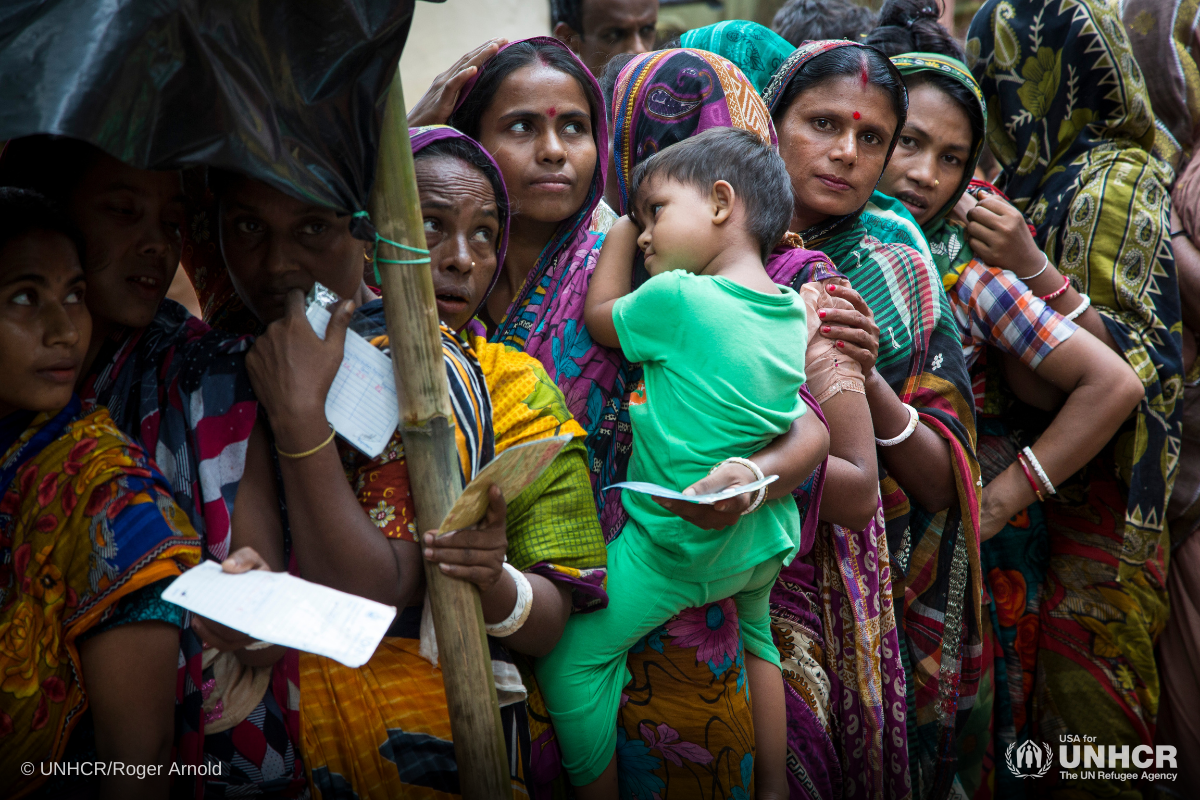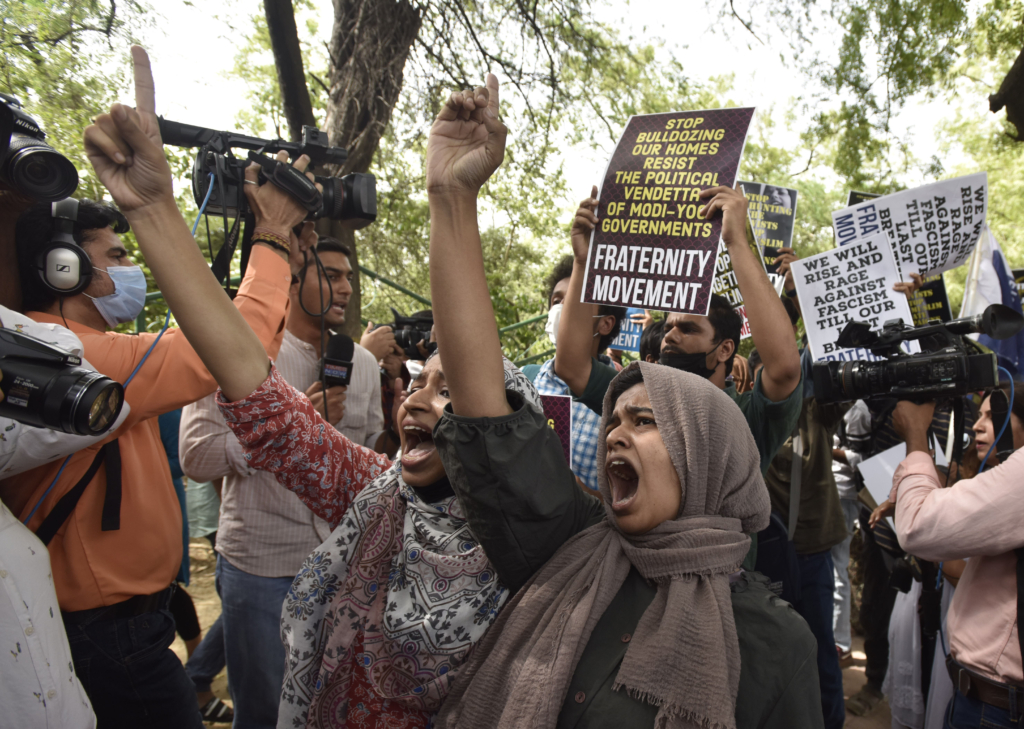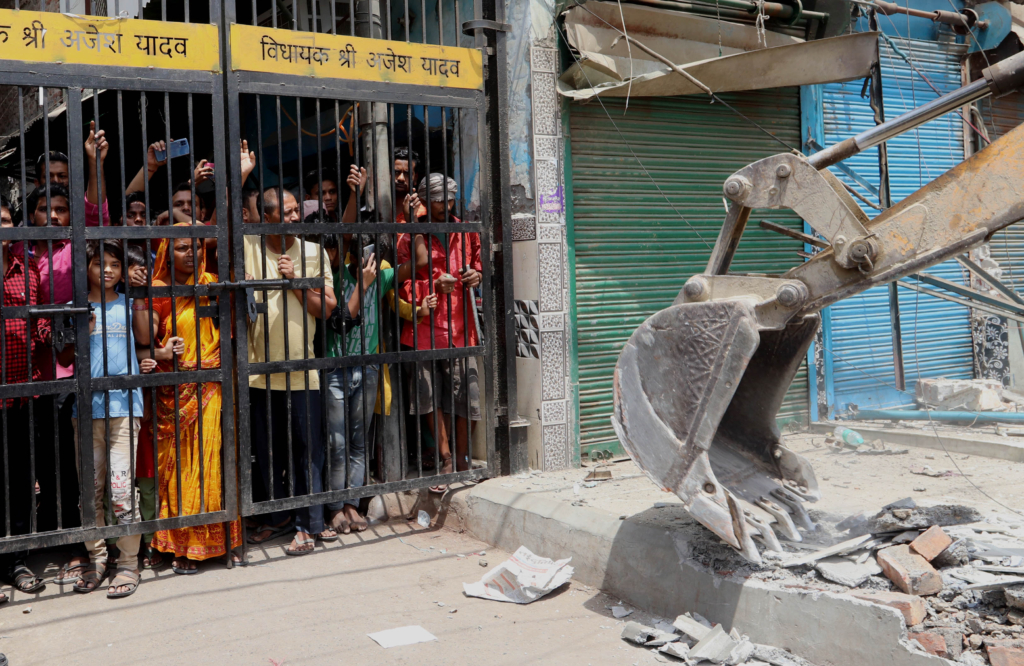September 17, 2024
Iran’s supreme leader expresses concern over the treatment
of Muslims in Gaza, Myanmar, India
By Abdus Sattar Ghazali
Iran’s supreme leader Ayatollah Ali Khamenei has expressed concern over the treatment of Muslims in Myanmar, Gaza, India.
Ayatollah Khamenei said in a social media post on Monday Muslims cannot be oblivious to the suffering of their brethren in India, Myanmar, and Gaza. "The enemies of Islam have always tried to make us indifferent with regard to our shared identity as an Islamic Ummah," he wrote.
His most recent reference to Indian Muslims came
It may be recalled that in March 2020, during the Delhi riots. Ayatollah Khamenei’s official account had tweeted: “The hearts of Muslims all over the world are grieving over the massacre of Muslims in India. The government of India should confront extremist Hindus & their parties & stop the massacre of Muslims in order to prevent India’s isolation from the world of Islam.”
Day 347: 41,252 killed, 95,497 wounded in Gaza
The number of Palestinians killed in Gaza on the 347th day of the ongoing Israeli genocidal war has risen to 41,252 with 95,497 people wounded, the Palestinian Health Ministry in Gaza said on Tuesday.
In its daily report, the ministry mentioned that Israeli occupation forces committed three massacres in Gaza, killing 26 people and wounding 84 others in just 24 hours, not counting those killed in the newest massacres.
Israeli occupation forces carried out a massacre on Tuesday in the al-Bureij refugee camp in central Gaza, targeting a densely populated residential area, killing over 50 people, an Al Mayadeen correspondent confirmed.
Plight of Rohingya Muslims in Myanmar
Rohingya Muslims in Myanmar continue to face harassment, oppression and persecution. The Rohingya are yet again bearing the brunt of renewed fighting and military air strikes in Myanmar, United Nations chief Antonio Guterres warned in March 2024.
The latest wave of fighting by armed groups who want to overturn the country’s 2021 military coup flared up at the end of October last year. The military extended the country’s state of emergency in January and announced a new, mandatory conscription programme in February, which many fear may also disproportionately affect the Rohingya people.
Not only are the Muslim-majority Rohingya being bombed “indiscriminately” but they are also being forcefully drafted into the army even though they are not recognized as citizens and have long been subject to persecution by the Myanmar authorities, particularly the military.
The Rohingya are a Muslim ethnic minority group who have lived for centuries in predominantly Buddhist Myanmar - formerly known as Burma. Despite living in Myanmar for many generations, the Rohingya are not recognized as an official ethnic group and have been denied citizenship since 1982, making them the world’s largest stateless population.
As a stateless population, Rohingya families are denied basic rights and protection and are extremely vulnerable to exploitation, sexual and gender-based violence (SGBV) and abuse.
The Rohingya have suffered decades of violence, discrimination and persecution in Myanmar. Their largest exodus began in August 2017 after a massive wave of violence broke out in Myanmar’s Rakhine State, forcing more than 742,000 people - half of them children - to seek refuge in Bangladesh. Entire villages were burned to the ground, thousands of families were killed or separated and massive human rights violations were reported.
Nearly one million stateless Rohingya refugees are living in Bangladesh.
Myanmar’s 2017 military crackdown on the Rohingya has been under investigation by the International Criminal Court (ICC) since 2019. However, there has been a lack of progress in the case.
In August 2017 Myanmar security forces launched a widespread and systematic assault on Rohingya forcing 700,000 fled to neighboring Bangladesh
Indian states demolish Muslim homes as punishment, says Amnesty report
Tellingly, in February 2024, Amnesty International released a detailed report saying that Indian authorities targeted the homes, businesses, and places of worship of Muslims using bulldozers.
The Hindu-majority country has been seeing a growing pattern of what is being dubbed モbulldozer justiceヤ aimed at punishing activists from minority groups, mainly Muslims, the rights organisation said, as it called for an end to the widespread and “unlawful” demolitions.
This comes at a time when the Narendra Modi administration has been accused of trampling over the human rights of minorities and weaponising religious discrimination, the Amnestysaid.
Authorities unleashedᅠbulldozers to crush the properties of dissenters and protesters in New Delhi and neighbouring state Uttar Pradesh, according to examples cited by the report. The aim of this brand of “bulldozer justice” was to destroy Muslim-owned shops, said the international human rights group which investigated 62 out of the total 128 demolitions documented in five Indian states between April and May 2022.
The local governments of Delhi and Uttar Pradesh have not yet responded to Amnesty’s report. The Independent reached out to representatives of the two governments for comment.
Amnesty said Muslim properties were “discriminatorily targeted” without any due process.
Amnesty International calls on the Government of India and state governments to immediately halt the de facto policy of demolishing people’s homes as a form of extra-judicial punishment and ensure nobody is made homeless as a result of forced evictions. They must also offer adequate compensation to all those affected by the demolitions and ensure those responsible for these violations are held to account.
“The unlawful demolition of Muslim properties by the Indian authorities, peddled as ‘bulldozer justice’ by political leaders and media, is cruel and appalling. Such displacement and dispossession is deeply unjust, unlawful and discriminatory. They are destroying families— and must stop immediately,” said Agnès Callamard, Amnesty International’s Secretary General.
“The authorities have repeatedly undermined the rule of law, destroying homes, businesses or places of worship, through targeted campaigns of hate, harassment, violence and the weaponization of JCB bulldozers. These human rights abuses must be urgently addressed.”
Between April and June 2022, Amnesty International researchers found that authorities in five states – Bhartiya Janata Party (BJP)-ruled states of Assam, Gujarat, Madhya Pradesh, and Uttar Pradesh and the Aam Aadmi Party (AAP) governed state of Delhi – carried out demolitions as a ‘punishment’ following episodes of communal violence or protests against discrimination by those in authority against Muslims.
Amnesty International investigated 63 of 128 documented demolitions in detail by interviewing more than a hundred survivors, legal experts, journalists and community leaders. At least 33 instances of the repeated use of JCB’s equipment were verified. The investigation also established that at least 617 people, including men, women, children and older persons, were rendered homeless or deprived of their livelihoods. These individuals were subjected to forced evictions, intimidation and unlawful force by the police and collective and arbitrary punishment, which undermined their rights to non-discrimination, adequate housing, and a fair trial.
In all five states, Amnesty International found that the demolitions — often carried out under the guise of remedying illegal construction and encroachment — were enacted without following any of the due process safeguards outlined in domestic law or international human rights law. State authorities enforced the demolitions and evictions without offering any prior consultation, adequate notice, or alternative resettlement opportunities. The destruction of buildings sometimes took place at night, with occupants given little or no time to leave their homes and shops, salvage their belongings, or appeal the demolition orders and seek legal redress.
Such demolitions constitute forced evictions, which are prohibited under international human rights law and the International Covenant on Economic, Social and Cultural Rights (ICESCR) to which India is a state party.
The Independent newspaper of UK pointed out that this is not the first time Amnesty International has flagged human rights concerns in India.
Under Prime Minister Modi, India has borne witness to “increasing violence against religious minorities, shrinking civil society space and criminalization of dissent” as he presided over a “period of rapid deterioration of human rights protections”, it had said in June last year during the Indian prime minister’s state visit to the US.
Known to account for 14 per cent of India’s 1.4 billion population, Muslims have been targeted for their food or clothing, or over inter-religious marriages. Amnesty International and Human Rights Watch have accused Mr Modi’s party of looking the other way and sometimes enabling hate speech against Muslims, the Independent concluded.

|
Published since July 2008 |
Your donation
is tax deductable.
The Journal of America Team:
Editor in chief:
Abdus Sattar Ghazali
Senior Editor:
Prof. Arthur Scott
Special Correspondent
Maryam Turab




